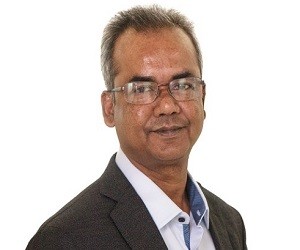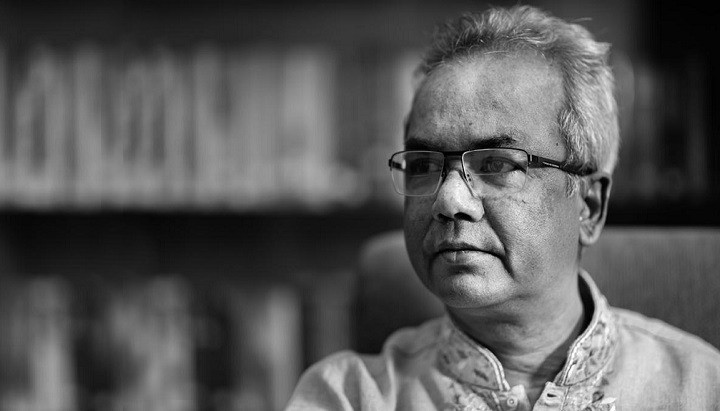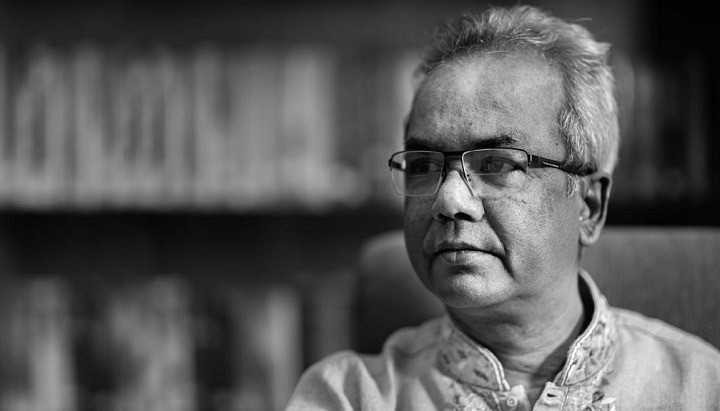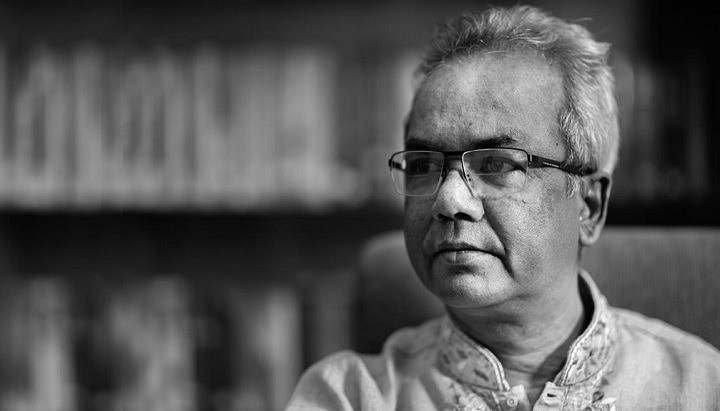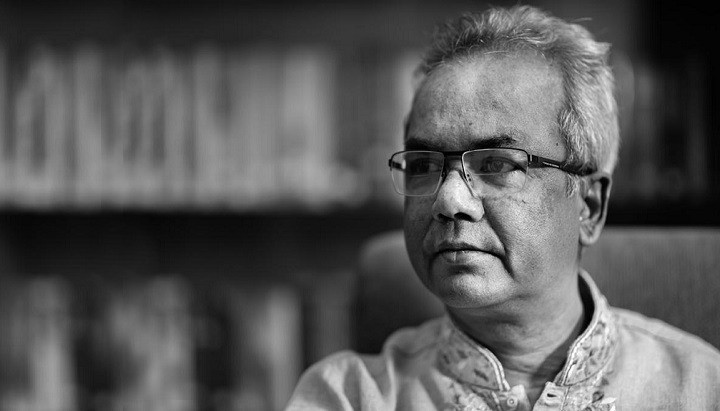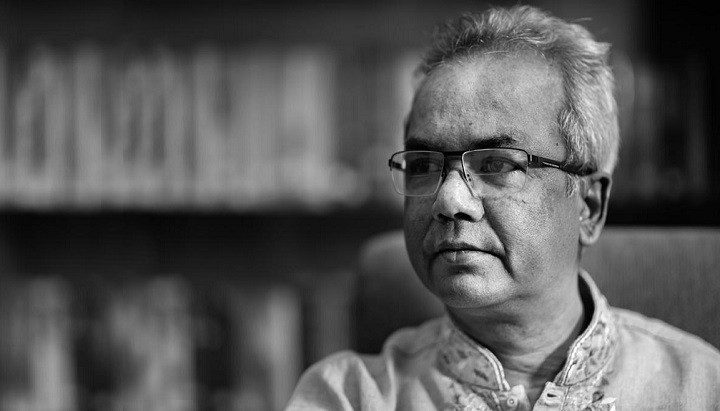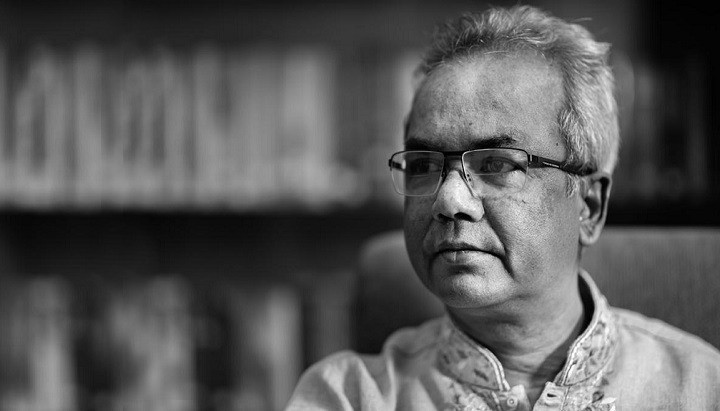On March 17, Bangladesh observed the birthday of its
founding father with deep respect and love. Bangabandhu envisioned a modern,
developed, prosperous, and self-reliant Bangladesh, which he called "Sonar
Bangla" (Golden Bengal). In just three and a half years, he transformed a
war-ravaged and devastated country into a success story of remarkable
reconstitution. But Bangabandhu was not satisfied. There were obstacles at
every turn. He spoke openly about these challenges and the enemies of
development, without any reservation. On March 26, 1975, on the occasion of the
historic Independence Day, he delivered a speech at the Martyred Intellectuals
Memorial in which he called for a struggle against corruption. In that speech,
he said, "If economic freedom is not achieved, political freedom will
fail. If people cannot eat their fill, cannot clothe themselves, and cannot
solve their unemployment problems, then peace will not return to their lives.
Who are the corrupt today? Those who give bribes, those who take bribes, those
who smuggle, those who engage in black marketing, those who do not fulfill
their responsibilities, those who work against conscience, those who sell their
country to foreign countries. We must start our fight against these dishonest
people. We must build forts in our homes to eradicate these dishonest people.
We must build these forts to alleviate the suffering of the people of
Bangladesh. ...These are all thieves, and I don't know where they came from.
Pakistan took everything, but if they had taken these thieves, I would have
survived." (Source: Sheikh Mujib, Bangladesh's Another Name - Dr. Atiur
Rahman. Pages: 267-268)
Prime Minister Sheikh Hasina is walking on the path shown by
Bangabandhu, leading Bangladesh forward in the struggle for economic freedom.
Under Sheikh Hasina's leadership, Bangladesh has achieved unprecedented success
in the past 14 years. However, the thieves still exist. They dance at the
celebrations of their corruption. These corrupt individuals, smugglers, and
willful defaulters are the biggest obstacles to the country's economy and
progress. They are a disease for this country, a terrible cancer. If we cannot
defeat them, we will not be able to build the 'Golden Bengal'. Our economic
liberation will be impossible. Bangladesh's economy is currently struggling
through a storm. Inflation is over eight percent. Recently, the Prime Minister
addressed a gathering of businessmen and stated, "The rise in commodity
prices is causing suffering for people." Bangladesh's foreign currency
reserves are now over 30 billion dollars. This is true, as Bangladesh's economy
has suffered a significant blow due to the Russia-Ukraine war. However, despite
the impact of the war's leadership, Bangladesh's economy remains strong. If
smuggling could be stopped, the burden of unwanted debts would not have
occurred. When Bangabandhu declared war against "thieves," they were
not "robbers," but they have turned into "monsters" now.
They are sucking up all our dreams and achievements like bloodsuckers. We must
wage war against them and defeat them.
Bangladesh is currently one of the top countries in the
world for money laundering. The exact amount of money that has been laundered
out of the country is unknown, but various credible sources in the
international media have reported that the amount exceeds 100 billion dollars.
If this money had stayed in the country instead of being laundered abroad, our
foreign currency reserves would have been over 130 billion dollars. We would
have become the 20th largest economy in the world. There is no denying that
money laundering has occurred. Everyone knows who has done it and where it has
taken place. Some incidents of money laundering have been proven, such as the
sudden disappearance of Member of Parliament Shahid Islam. In the 2018
election, he shocked everyone by winning the Lakshmipur-2 seat in parliament.
While he was a Member of Parliament, he was arrested in Kuwait on charges of
human trafficking, visa fraud, and money laundering by the Kuwaiti law
enforcement agencies. The Kuwaiti investigation agency proved in court that
Shahid had laundered 53 million Kuwaiti dinars (1,400 crore taka). In a
four-year sentence, Shahid has been punished and is now in jail in Kuwait. His
position as a member of parliament has been revoked, but there is no visible
progress in recovering the smuggled money. In 2020, the news of a Bangladeshi
housewife's huge wealth created a buzz in the global media. Shamima Sultana
Jannati, the wife of a member of parliament, bought a house in Canada for CAD
14.56 million and sold it off. Jannati is not the only one involved in money
laundering in Canada. The list of Bangladeshi money launderers in Canada is so
long that the entire 'Bangladesh Pratidin' newspaper will not be enough to list
them all. In Canada, notorious money launderer Prashant Kumar Halder was
recently arrested in India. Despite facing arrests in Bangladesh, Halder
managed to flee to Canada. The Anti-Corruption Commission had stated that
Prashant Kumar Halder had laundered Tk 5,000 crore. However, after being caught
in India, he claimed that the amount laundered from Bangladesh was around Tk
10,000 crore. Prashant told Indian investigators, 'This money is not mine, I am
only a carrier. The owner of the money is well known. He is outside the
country. Dr. AK Abdul Momen, the Foreign Minister, provided the most volatile
information on money laundering in Canada and the issue of Bangladeshi homes in
Begum Para. The Foreign Minister talk about it without any discrimination,
without any cover-up. In November 2020, at an event, Dr. Momen said,
"There is some truth to the allegations of money laundering from
Bangladesh to Canada. And according to preliminary information, the number of
government officials involved in money laundering is more." The Foreign
Minister said, "I thought there would be more politicians involved. But it
turns out that there are only four politicians. The number of government
officials is more. Apart from this, there are some businessmen." That is,
the government knows all the necessary information about money launderers in
Canada. No action has been taken against them. The story of two infamous
student leaders from Faridpur, Barkat and Rubel, is no longer a secret. They
used to form student groups before. After Mosharraf Hossain became established
as a "landlord" in Faridpur, Barkat and Rubel became part of the
student league. Then the reign of looting in Faridpur began. In Faridpur,
Rubel-Barkat were arrested after Engineer Mosharraf Hossain's tenure ended.
According to the CID, the two have smuggled almost BDT 200 billion abroad. CID
have arrested several people of the Mosharraf gang on allegations of money
smuggling. However, no progress has been made in recovering the money. To
prevent money smuggling, the Financial Intelligence Unit (FIU) of Bangladesh
Bank has been formed. The FIU's annual report (2021-22) states that prices of
certain goods have been raised by 20% to 200%. This means that goods that were
imported for $100 are being sold for $200. Although it is difficult to estimate
the amount of money that has been smuggled, it can be assumed that some amount
has been smuggled. According to a report by the Washington-based International
organization Global Financial Integrity (GFI), Bangladesh has lost BDT 4,965
crore or $4 billion in the past 14 years due to international trade. According
to the information of the GFI, more than $12 billion has been smuggled through
international trade fraud. Abdur Rauf Talukder, the Governor of Bangladesh
Bank, has taken responsibility to prevent over-invoicing in imports and
under-invoicing in exports. Now, proposed import items are verified against
international market prices before being allowed to be imported. After
examination and inspection, permission is granted for the import of goods.
Before the arrival of the new governor, abnormal prices of various imported
goods had to be accepted. For example, the import price of 1 kg of strawberries
was shown to be $1,000! Imports of oranges and lemons were done at a cost of
$800 per kg. It is understood that these exorbitant price increases were done
solely for the purpose of money laundering. It doesn't take a genius to figure
that out. About $10 billion worth of imports have been made in just one year.
What is the result? Only over-invoicing? No, under-invoicing has also been done
through the medium of hundi to smuggle money. Through illegal means,
Bangladeshis have been investing in Malaysia, buying second homes in Canada,
and investing in many countries in North and South America, Europe, Eastern
Asia, Central Asia, and even the island of Afsar. Those involved in businesses
such as garment and fruit trade know how much money has been smuggled and where
it has been hidden. The government is not unaware of this. It was reported
internationally that a businessman in Singapore had purchased a five-star hotel.
Was the money from Bangladesh transferred to Singaporean accounts? Some people
in Thailand have built a huge empire by smuggling money from Bangladesh. Not
only through imports and exports, but also through financial fraud in mobile
transactions, money is being smuggled out of Bangladesh. According to the
information of the CID, Bangladesh has lost 7.8 billion dollars through this
type of fraud. Many looters keep the money they have stolen in Switzerland.
Many consider Swiss banks to be a safe haven for depositing money. In 2021,
Bangladeshis had deposited 82.76 billion taka in Swiss banks. In 2020, it was
53.48 billion taka. In just one year, smuggled money deposited in Swiss banks
has increased by 30 billion taka. Who is involved in this smuggling?
Many have opened companies in the island nations known as
'tax havens' or 'paradise papers' by smuggling money from the country. The
names of 84 people, including the influential leader of the BNP Abdul Awal
Mintoo and his wife and son, were published in that list by the International
Consortium of Investigative Journalists (ICIJ) on their website a long time
ago. The Anti-Corruption Commission's lawyer said that an investigation is
underway against them. However, no one knows the progress of that
investigation. Many of those who smuggle money are loyal to the government.
Their behavior is visible around the government. Many of them were once loyal
to the BNP and the Hawa Bhaban. Now they have changed color and become loyal to
the Awami League. It is heard that they also give a share to a prominent leader
of the BNP from the money they smuggle to London. They do not see the country's
interests. They are busy presenting themselves cruelly. They keep their feet on
two boats to avoid future concerns.
Just as a terrible disease, the business of loan defaulters
is another malady in our economy. A few days ago, President M. Abdul Hamid said
in a speech, "Many take bank loans just to embezzle the money. They become
willful defaulters." The President was right, in the past few years, the menace
of loan default has thrown some deep crises into the banking system. According
to Bangladesh Bank's accounts, the amount of defaulted loans at the end of the
last fiscal year was Tk. 125 billion. Companies with no assets or identity have
taken hundreds of crores of Taka in loans. Clearly, influential groups with no
government control have opened companies and looted banks with the help of
their cronies. Some people have cheated the banks by taking loans and fleeing
abroad. The money of Hallmark's scam has not been recovered. They have
embezzled the banks' money and are enjoying a luxurious life abroad under the
name of the Bismillah Group. Six banks took a loan of 12,000 crore (120
billion) taka by showing fake documents. Now the owners of this group are
living a luxurious life abroad with the borrowed money. While the people of
Bangladesh are suffering. The owners have formed a syndicate controlling almost
all private banks under the influence of a few individuals. They are now part
of the ruling Awami League. But in the language of Bangabandhu, they are
'thieves'.
The Finance Minister in 2018 had said that not a single
penny of bad debt would increase. However, in the last four years, bad debts
have doubled. There is no possibility of recovering more than half of these
debts. The Finance Minister's efforts have not been effective in stopping
financial corruption either. In the budget speech, the Finance Minister
announced a general amnesty for smugglers. But in the first eight months of the
fiscal year, not a single penny of smuggled money has been recovered. No one
wants to be recognized as a thief. Therefore, imposing a 7.5% tax on smuggled
money to bring it back into the country is a feasible option. It will not be
possible to forgive and forget, and we need to take a firm stance. Otherwise,
the people of the country will be held responsible by smugglers and bad
debtors. We need to organize a political movement against financial corruption,
bad debt, and dishonesty. In this context, I can see a ray of hope. Prime
Minister Sheikh Hasina has declared a strict stance on returning money to the
country's financial sector. Despite the opposition of smugglers and loan
defaulters, the Prime Minister has sent a message of strictness against them.
Based on that message, the recent remarks of Awami League Joint General
Secretary and popular leader AFM Bahauddin Nasim have created a stir in
politics. Nasim said, "We have to fight against corruption, nepotism,
looters, loan defaulters, and bank robbers. They are the enemies of the country
and a big obstacle to Sheikh Hasina's development and prosperity." The
statement of Bahauddin Nasim is in line with the wishes of Awami League
President. Loan defaulters, smugglers, and corrupt people cannot be anyone's
friend. They are the enemy of the nation. The Father of the Nation had two
goals when he declared independence on March 7, 1971. One was political
independence, and the other was economic freedom. The opponents of political
independence were the Rajakars, Al-Badr, and war criminals. Similarly,
obstacles to economic freedom were the corrupt, the profiteers, and loan
sharks. They are the war criminals of this time. We must say 'no' to them. We
must eliminate them. Otherwise, we will never achieve the dream of
Bangabandhu's 'Golden Bengal'. The father of the nation had called for their
eradication. It is his daughter who must end this war against them. Sheikh
Hasina must be victorious in this war. After 1975, looters, black money
holders, and thugs entered Bangladesh's politics. They seized control of
politics by supporting military dictatorships. These corrupt and criminal
elements act like sycophants under every government. They suck the blood of the
nation. They seek opportunities to become close to the government. The Awami
League has been in power for only 14 years. The looter gang is now clashing
with the government and Awami League. Looking at their past, it can be seen
that they looted during Ershad's time and made themselves wealthy by occupying
the Hawa Bhaban. Now they have become bigger than Awami League! Because of
them, the loyal and tested members of Awami League are being marginalized. They
use the power of money to buy support or to get their preferred people elected.
The looters use their money to get into the committees of the Awami League.
They have robbed us and created a mountain of wealth abroad. If their theft is
not stopped, the government's entire achievements will be lost. Let us take a
tough stance against money launderers and loan defaulters of Awami League before
the upcoming elections; this is the people's expectation. The people do not
want to see any looters around the corridors of power. If we take action
against them, it will create a wave of support for Awami League. The country
will survive, and the economy will thrive if we take this tough stance. Only
Sheikh Hasina can take this tough stance. Money launderers and bank looters are
the cancer of Bangladesh. The disease has been identified and now it only needs
the right treatment.

